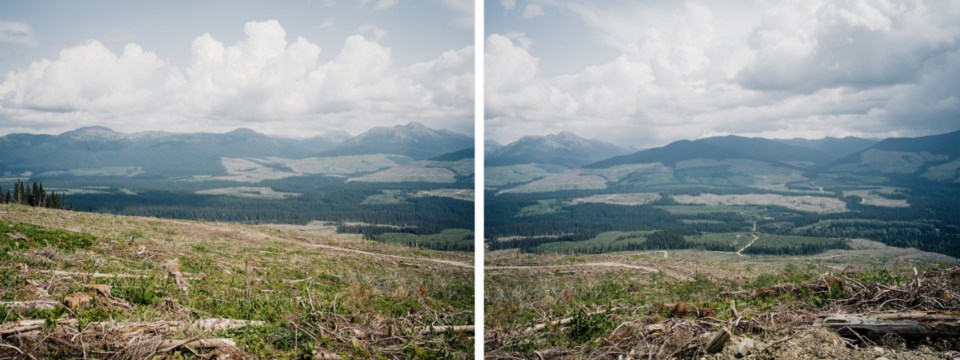A Prince George-based conservation group is echoing a call by a trio of scientists in an independent report for a moratorium on any further logging of old-growth forests in the region as well as in the rest of the province.
That may be a tough sell in an area so heavily dependent on forestry, but Conservation North director Michelle Connolly says time is of the essence if we want to save the last of this region's stands of old-growth spruce and cedar-hemlock rainforests.
"We're arguing that even though we should've transitioned to second growth ages ago, we still have the opportunity to do it now," Connolly said. "And we need to do it now because if we wait another five or 10 years, we just won't have these forests left on the landscape."
The report, released last month by Karen Price, Rachel Holt and Dave Daust, found that 85 per cent of productive forest sites - essentially ones that are attractive to loggers - have less than 30 per cent of the amount of old-growth that would be expected naturally. Of those, half have less than one per cent of expected old-growth.
"This current status puts biodiversity, ecological integrity and resilience at high risk today," they said in their report, which is posted at veridianecological.ca.
Most of the Central Interior is marked as a "red zone" in the report, where the risk to biodiversity is considered high.
Connolly said the findings fall in line with what Conservation North members have seen in this region as loggers continue to go after so-called "high-productivity" old growth.
"Many of our valley bottoms in the Upper Fraser are completely cleaned out of old growth," Connolly said. "It's the easiest place to put in a road, you get the trees out the easiest and the fastest there and the higher you go, the more expensive it gets."
Connolly said the group has also heard from guides, hunters, anglers, and foresters who are concerned about the rate and scale of logging activity, particularly in the Anzac and Table river areas.
"They've told us about how their livelihoods are suffering because of the logging in some of these areas," Connolly said.
The report was done to aide a two-person expert panel appointed in late 2019 to make suggestion on a new approach to old-growth management in British Columbia. The scientists volunteered their time to inform the panel and submitted their own findings over the past six months.
The trio recommend three key actions, starting with government immediately stopping the harvesting of the "rarest of the rare" trees.
This would mean retaining all old forest in any ecosystem that has less than 10 per cent of old trees remaining, focusing on retaining higher-productivity sites and the irreplaceable older and ancient forests, and retaining productive, mature stands - smaller management units of trees used for forestry - where there is little or no old-growth left.
They recommend government develop and implement "ecologically defensible" targets for the protection of old forest, protecting at least 30 per cent of each naturally occurring ecosystem.
And they recommend government improves how it implements policy, such as closing loopholes used by the forest industry, to ensure old-forest retention protects the last remaining productive old forest, and provides functional forests for years to come.
"Without immediate action, we will lose these globally priceless values - and still have to deal with a volume-based industry that has not planned ahead for transition," the scientists wrote.
"The provincial government must provide funding, commitment and management authority to ensure that staff can implement effective forest conservation. Little human effort is tasked with protecting old-forest values, while much is focused on harvesting."
The provincially-appointed panel is expected to provide its own report soon.
- with files from Vancouver Sun



